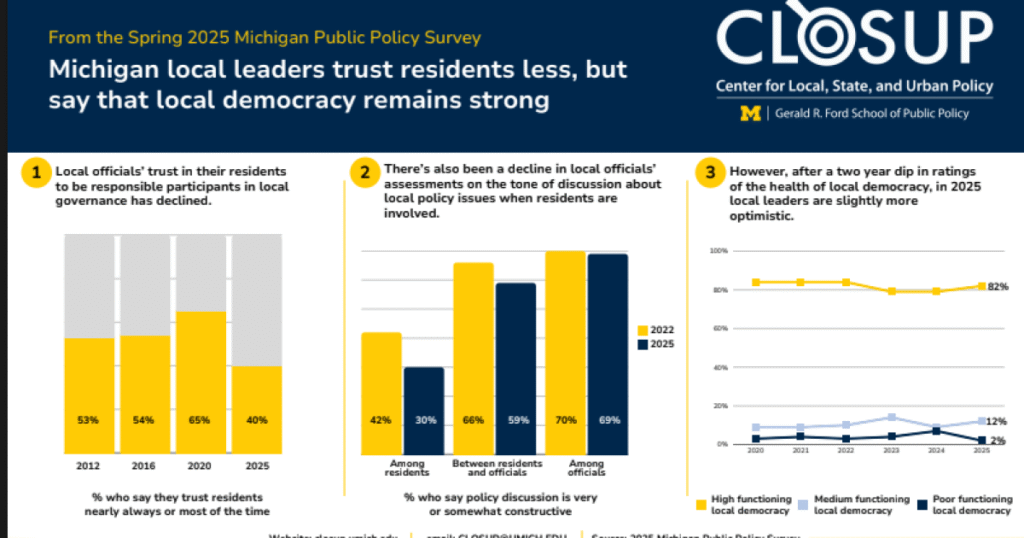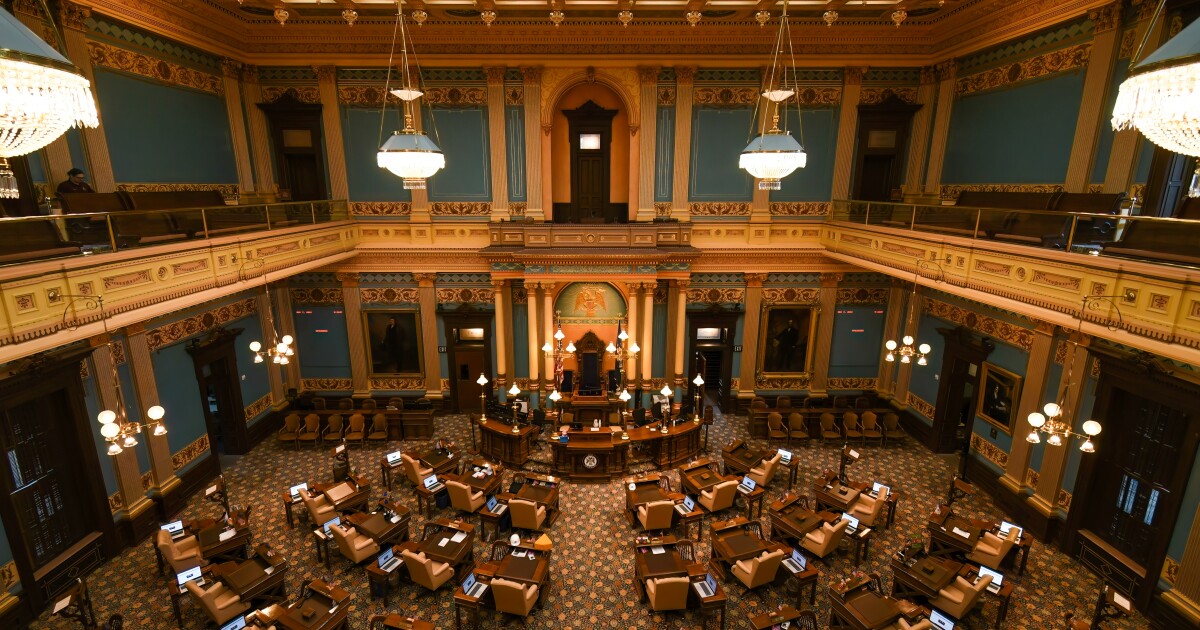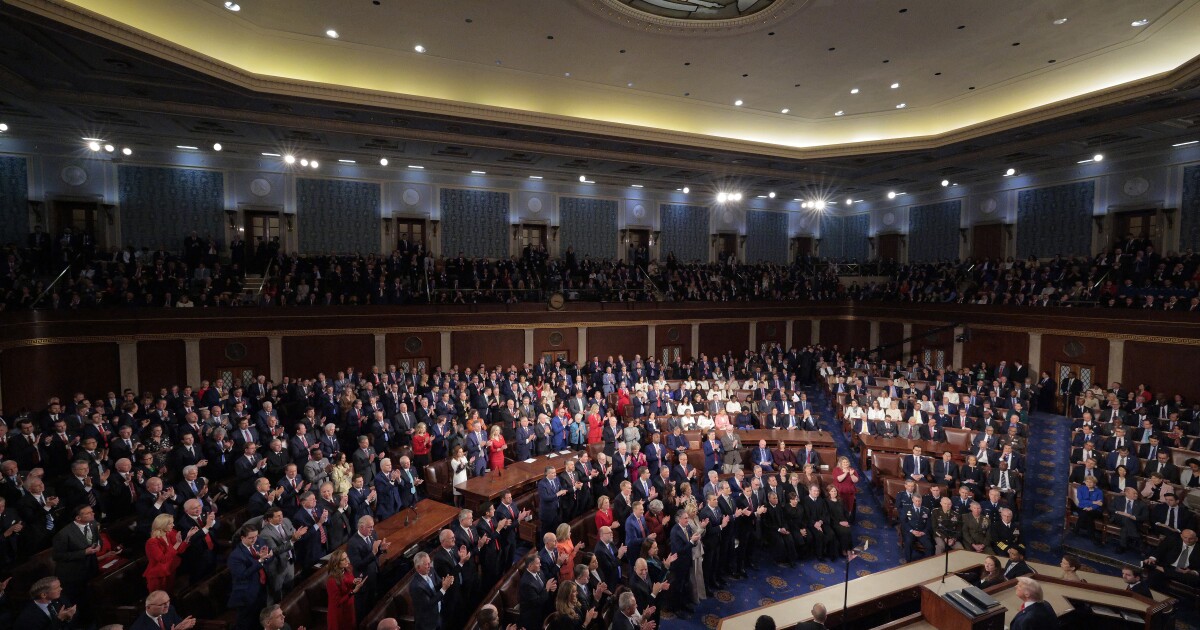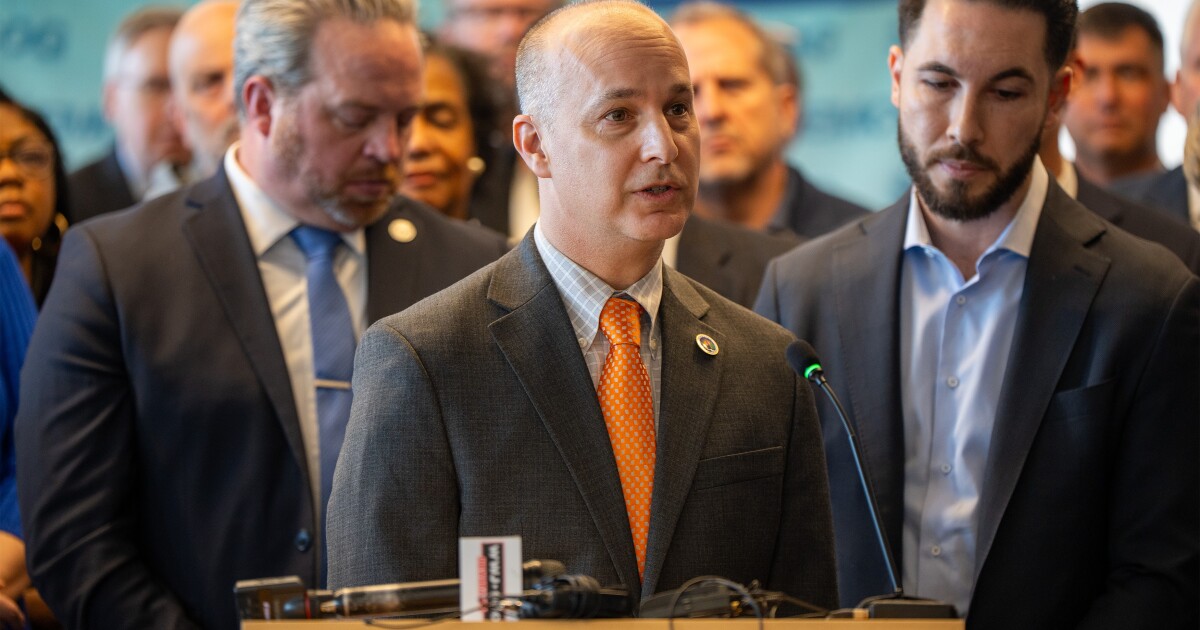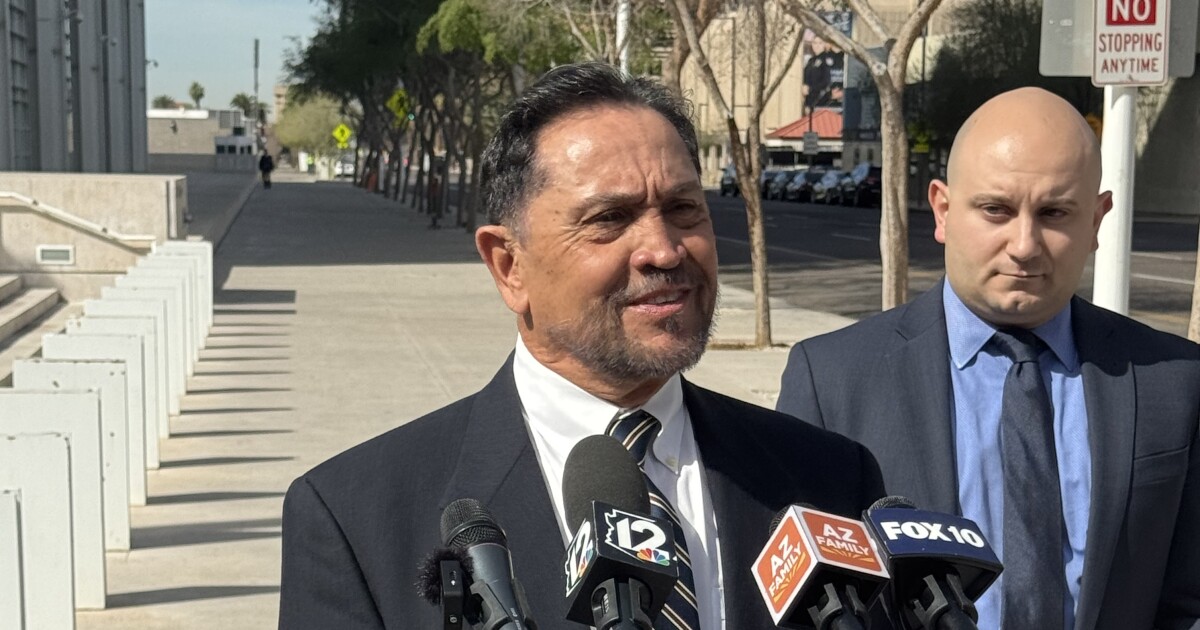Decline in Trust Among Michigan’s Local Officials: A Closer Look
In Michigan, local officials are experiencing a decline in trust toward their residents’ participation in government, yet they still maintain confidence in the effectiveness of local democracy. According to the recent findings from the Michigan Public Policy Survey conducted by the University of Michigan’s Center for Local, State, and Urban Policy, the shift in trust levels is noteworthy.
The survey revealed that fewer than 40% of local officials express trust in their residents either nearly always or most of the time. Conversely, over 20% of these officials report rarely trusting residents to engage responsibly.
This represents a decrease of 15 percentage points in trust levels compared to the onset of the Covid-19 pandemic, when trust was at its peak. The survey included a variety of respondents, from elected officials to city clerks and managers, as clarified by Stephanie Leiser, the study’s co-author.
Despite this decline in trust, local officials believe they can continue to perform their responsibilities effectively. “They can run the water systems, they can pave the roads, they can do all of these things,” Leiser explained.
The survey also highlighted differences in trust levels across different community types. While political affiliation did not show a significant variance, with Independent officials showing the lowest trust, rural and urban divides were apparent. This discrepancy is not new, Leiser noted.
“We see when we’re looking at resident engagement and the different types of engagement that are happening, there’s a trend, kind of across several indicators, that rural communities are falling further behind compared to urban communities,” Leiser commented. She attributes this to rural areas’ limited capacity for extensive resident engagement and handling controversial issues.
The survey also pointed out a decline in the quality of public discourse between local officials and residents. Approximately 59% of officials now describe their interactions as somewhat or very constructive, a drop from 70% in 2012.
Nonetheless, officials are adopting new strategies to engage residents, such as leveraging social media, streaming meetings, and offering more information in town hall settings, Leiser stated. “Despite the fact that their residents aren’t necessarily taking them up on these offers, they’re doing a lot more, especially in digital space,” Leiser explained. “But like I said, there’s a little bit of a disconnect with residents picking them up on those offers.”
This Michigan Public Policy survey, which has been tracking these trends since 2012, typically sees about a 70% response rate from officials across Michigan’s 1,856 cities, villages, townships, and counties.
—
Read More Michigan News

